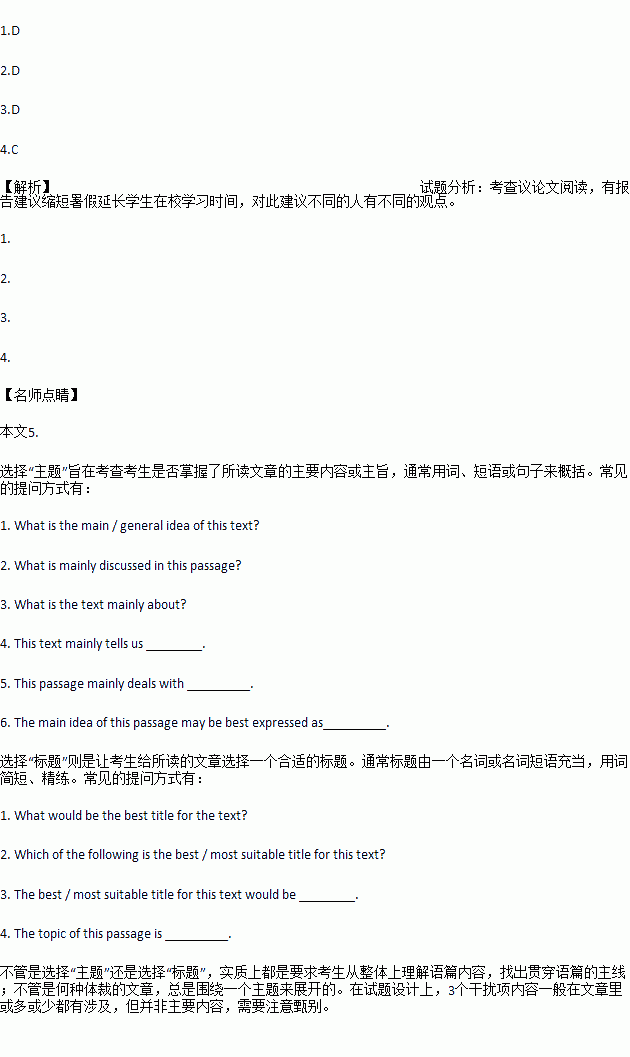题目内容
In many countries, schools have long summer holidays, with shorter holidays in between. However, a new report suggests shortening school holidays to stop children forgetting what they have learnt during the long summer break. Instead of three school terms, it says, there should be five eight-week terms. And there should be just four weeks off in the summer, with a two-week break between the other terms.
Sonia Montero has two children at primary school and works full-time. She supports the idea. “The kids,” she says, “have much longer holidays than me and I can’t afford to take several weeks off work, so I need someone to take care of them. But nobody wants the work in the summer months — they all have holidays of their own.”
Not surprisingly, some young people disagree. Student Jason Panos says “It’s a stupid idea. I would hate staying at school in the summer. It’s unfair, too. The people who suggest this had long school holidays when they were young, but now they want to stop us enjoying the summer. The kids in Spain and America have much longer holidays than here, but they don’t forget everything they’ve learnt in a few months.”
Nadia Salib agrees. “Sure,” she says, “the first week at school after the summer is never easy, but you soon get back into it. The real problem round here is that kids get bored after so many weeks out of school, and then some of them start causing trouble. But the answer is to give them something to do, not make everyone stay in school longer.”
1.Why is Sonia in support of shorter school holidays?
A. She doesn’t get any summer holidays in her job.
B. She is worried that her children will forget what they’ve learnt.
C. She can’t afford to pay someone to look after her children.
D. She can’t get anyone to look after her children in summer.
2.What does Jason say about long summer holidays?
A. They can help children forget about school.
B. Schools in other countries don’t have them.
C. These days many older people have them too.
D. They have little influence on children’s education.
3.What does Nadia say about young people on summer holidays?
A. They would like to spend more time at school.
B. Long holidays are very bad for their education.
C. They need something to do to enrich themselves.
D. Long holidays should be shortened to stop them causing trouble.
4.Which of the following statements best explains the text?
A. It has been decided that summer holidays should be shortened.
B. Students are angry that school holidays have been changed.
C. Some people want to change school holidays but not everyone agrees.
D. Teenagers are worried that they will be busy during summer holidays.



 on I noticed him.
on I noticed him.